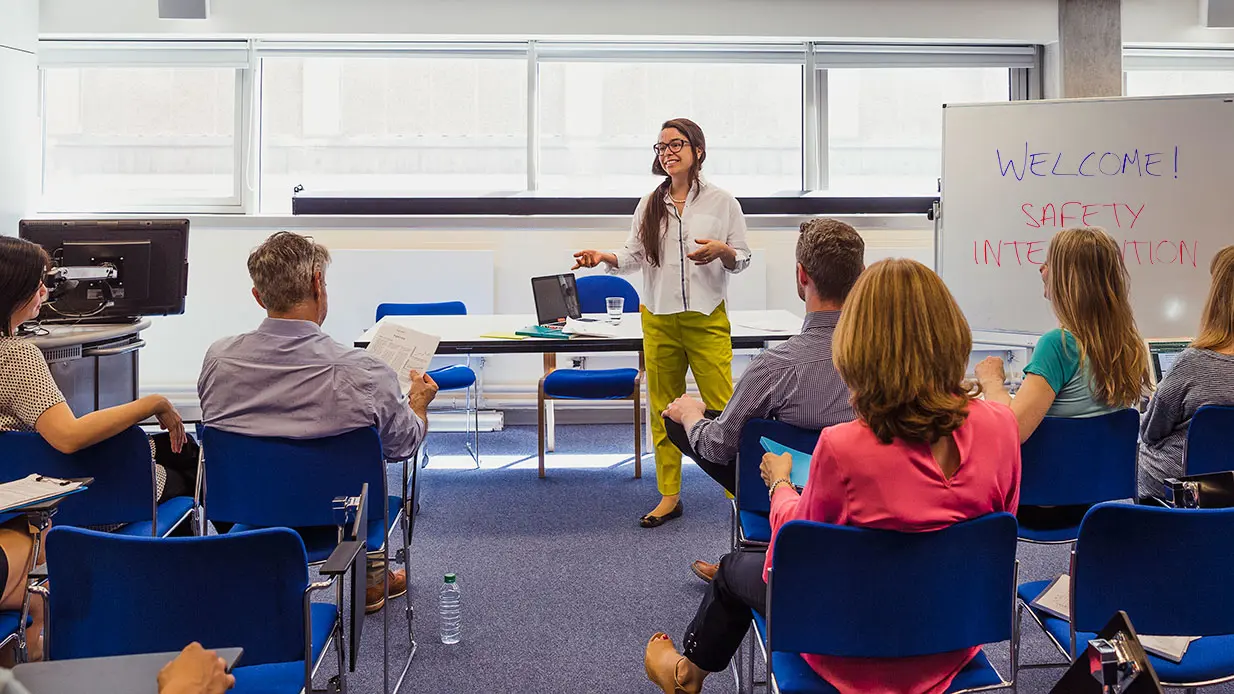
CPI Safety Intervention ™ Foundation training, formerly known as MAPA ® , is for those who need to prevent and/or intervene in crisis situations. The programme focuses on prevention and teaches staff de-escalation skills as well as non-restrictive and restrictive interventions.

Safety Intervention ™ Foundation training incorporates trauma-informed and person-centred approaches. It is recommended for professionals who work in environments that require restrictive or physical intervention techniques. Participants will engage with seven modules and practical skills, including safety intervention & disengagement skills.
Essentially, we have taken the term MAPA ® which was used to describe the full curriculum and divided it into two distinct programmes:

The programme includes all of the elements included in the Verbal Intervention ™ Starting with these previous skills you learn simple behaviour assessment and decision-making skills to ensure escalation is avoided.
When faced with a behavioural crisis that places staff or others at risk of injury, you learn how to focus on the least-restrictive physical intervention to ensure the Care, Welfare, Safety, and Security SM of those you support.

We are the only training provider that includes physical interventions that have been independently risk assessed, following published research which demonstrates that they maximise safety and minimise harm and follows international standards of best practice.

Our evidence-based approach has been successfully used for over 40 years and is nationally and internationally accredited by IACET, RRN Training Standards, RQF and CPD.
Safety Intervention ™ training, formerly known as MAPA ® , emphasises physical intervention as a last resort and only when appropriate to the level of risk.
Safety Intervention training is fully compliant with current statutory and legal requirements, ensuring a safer workplace for your staff.
Employee Performance and Better OutcomesPreventing workplace crisis reduces staff burnout and increases feelings of safety and job satisfaction. By reducing conflict situations, it increases staff confidence and improves outcomes for the people you support.
Ensure the Well-Being of Those in Your CareOur training has been used by over 15 million people to successfully manage challenging behaviour and to prevent or minimise the likelihood of a crisis.